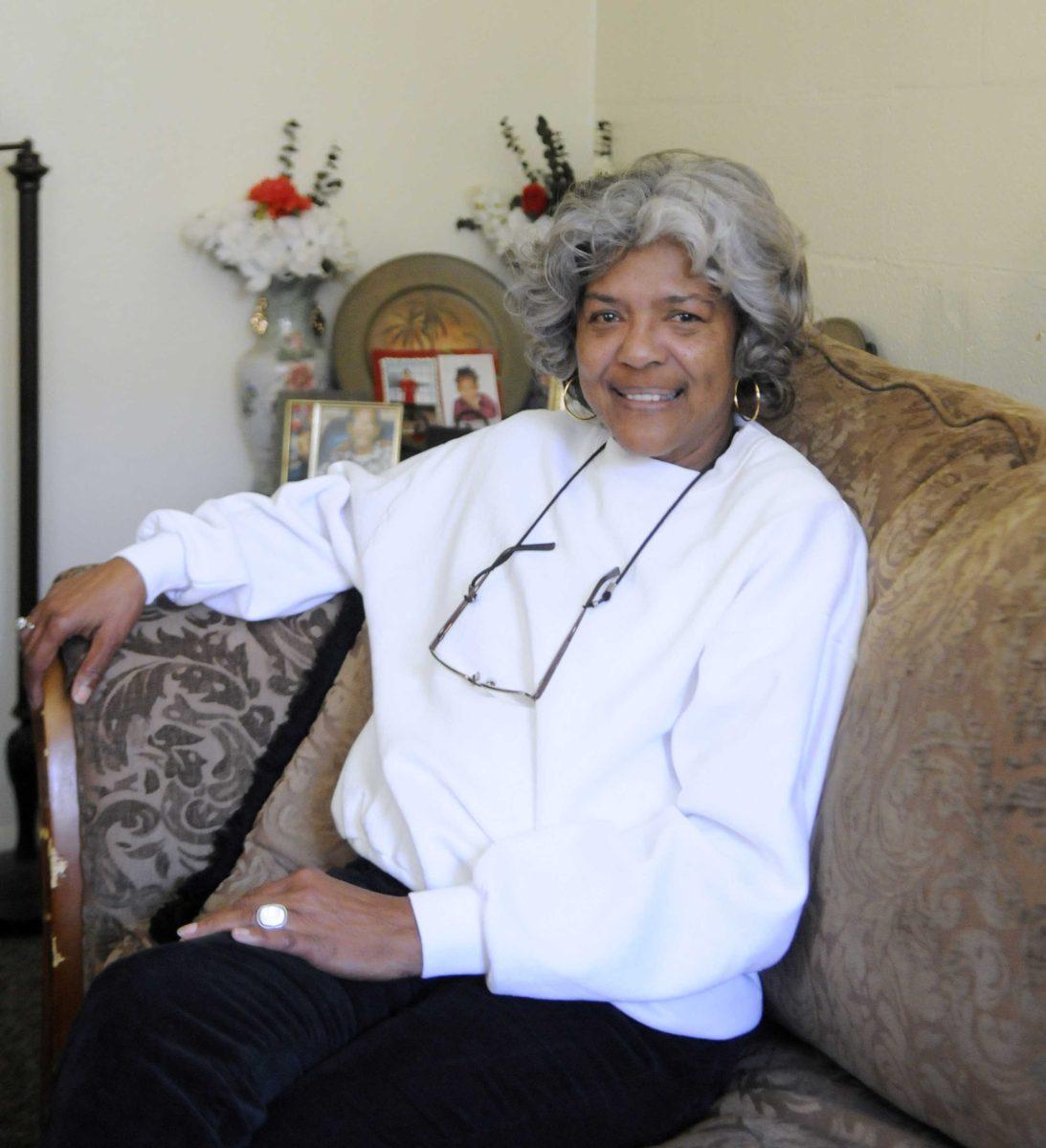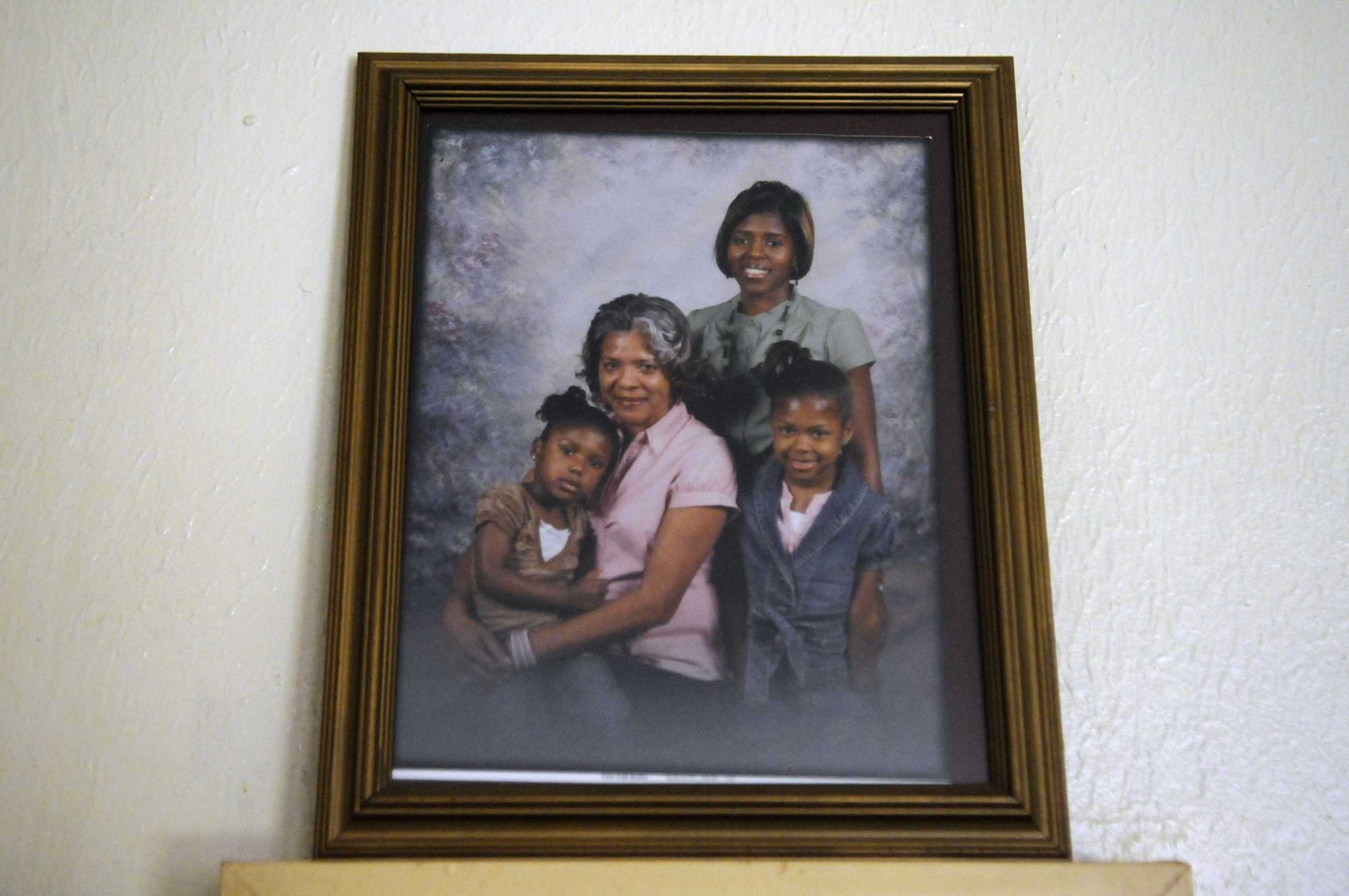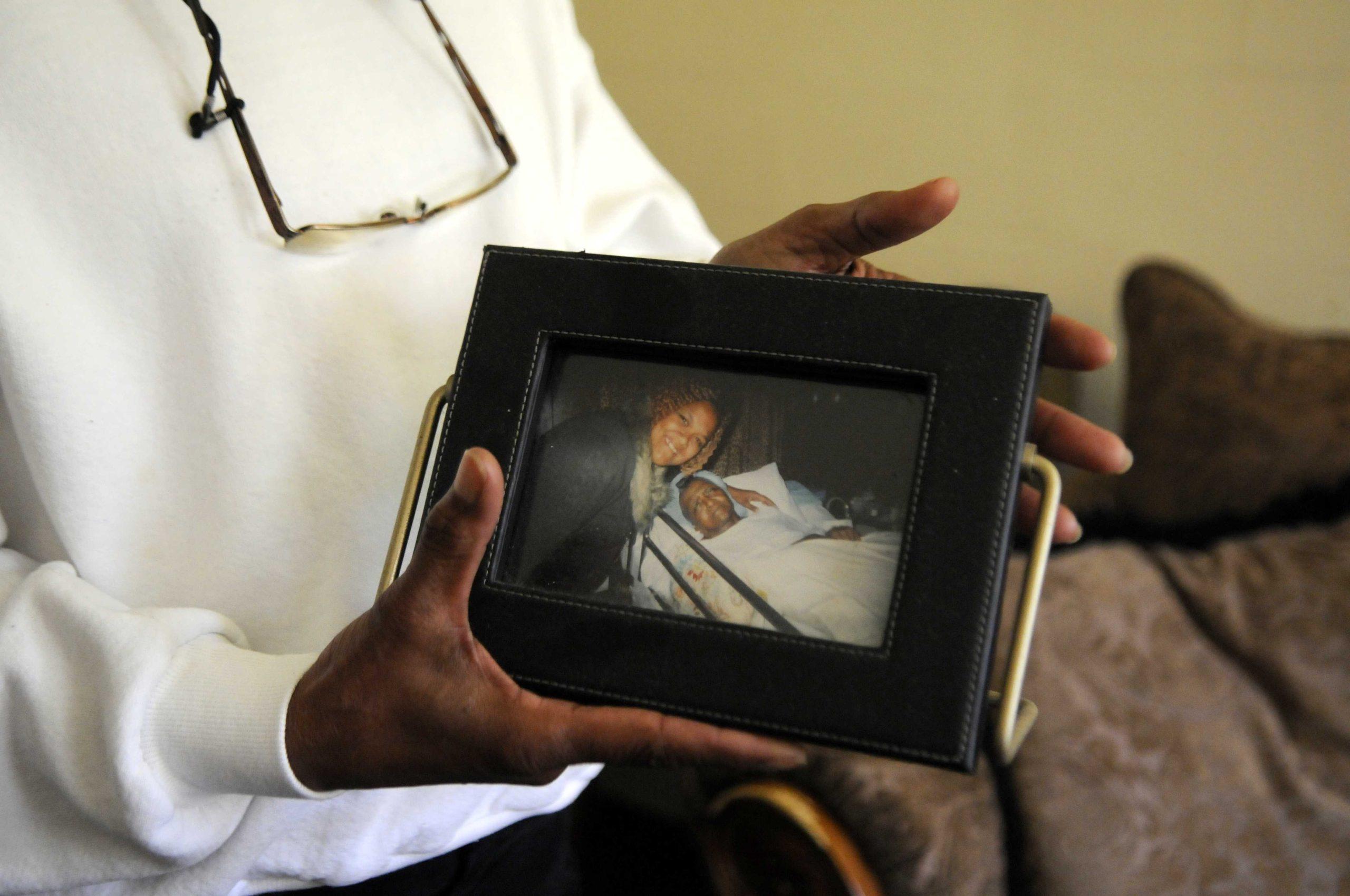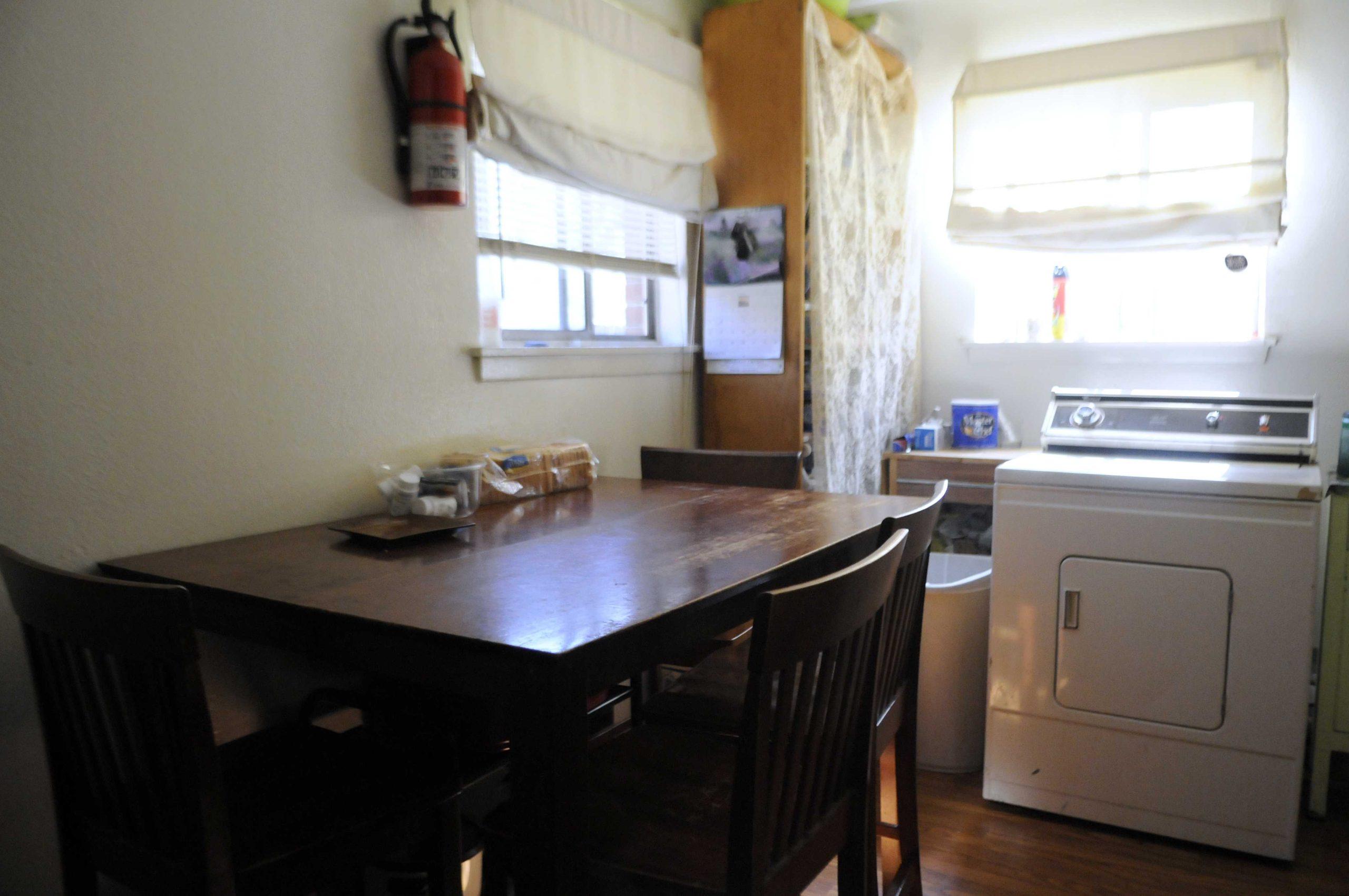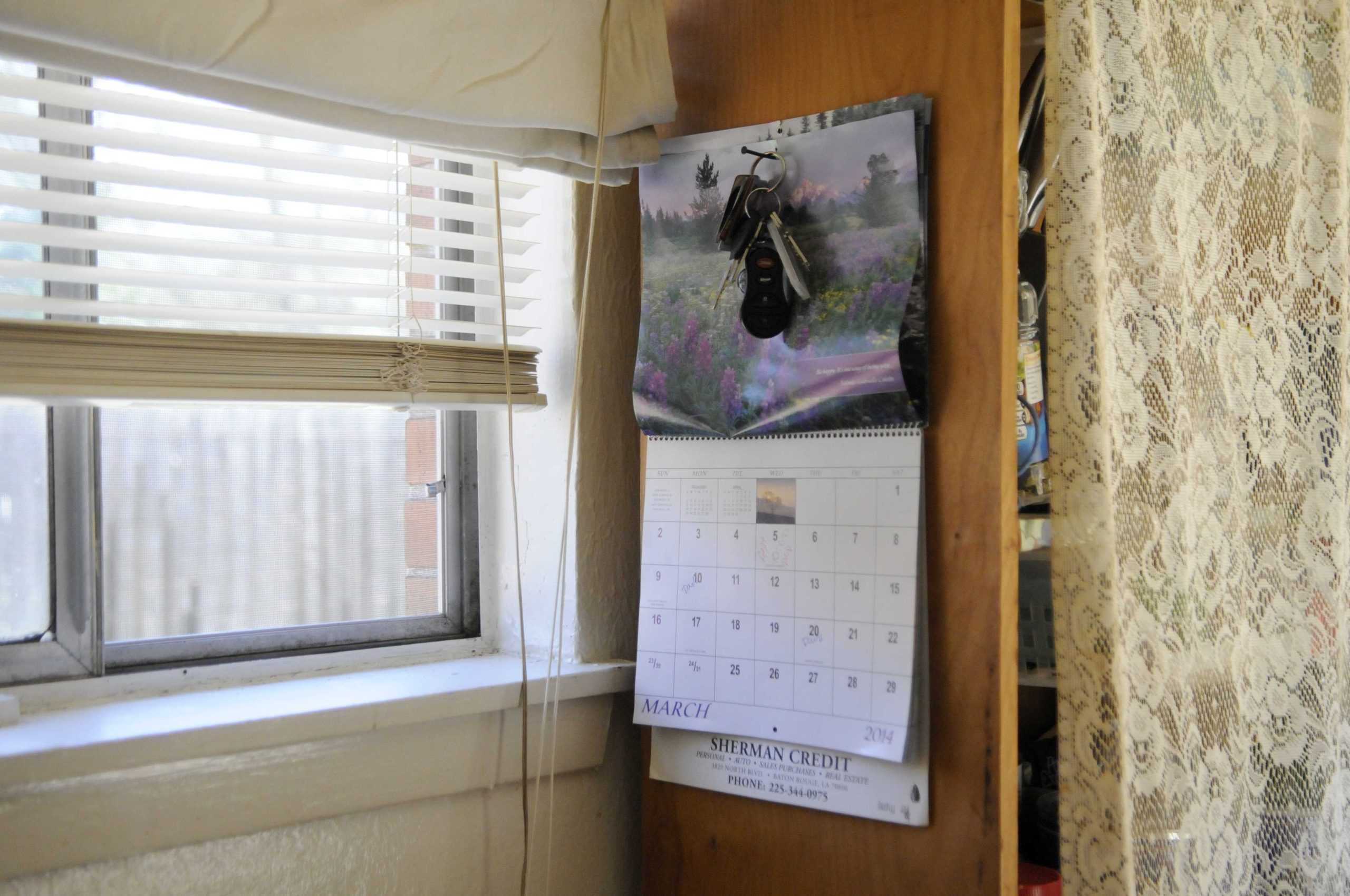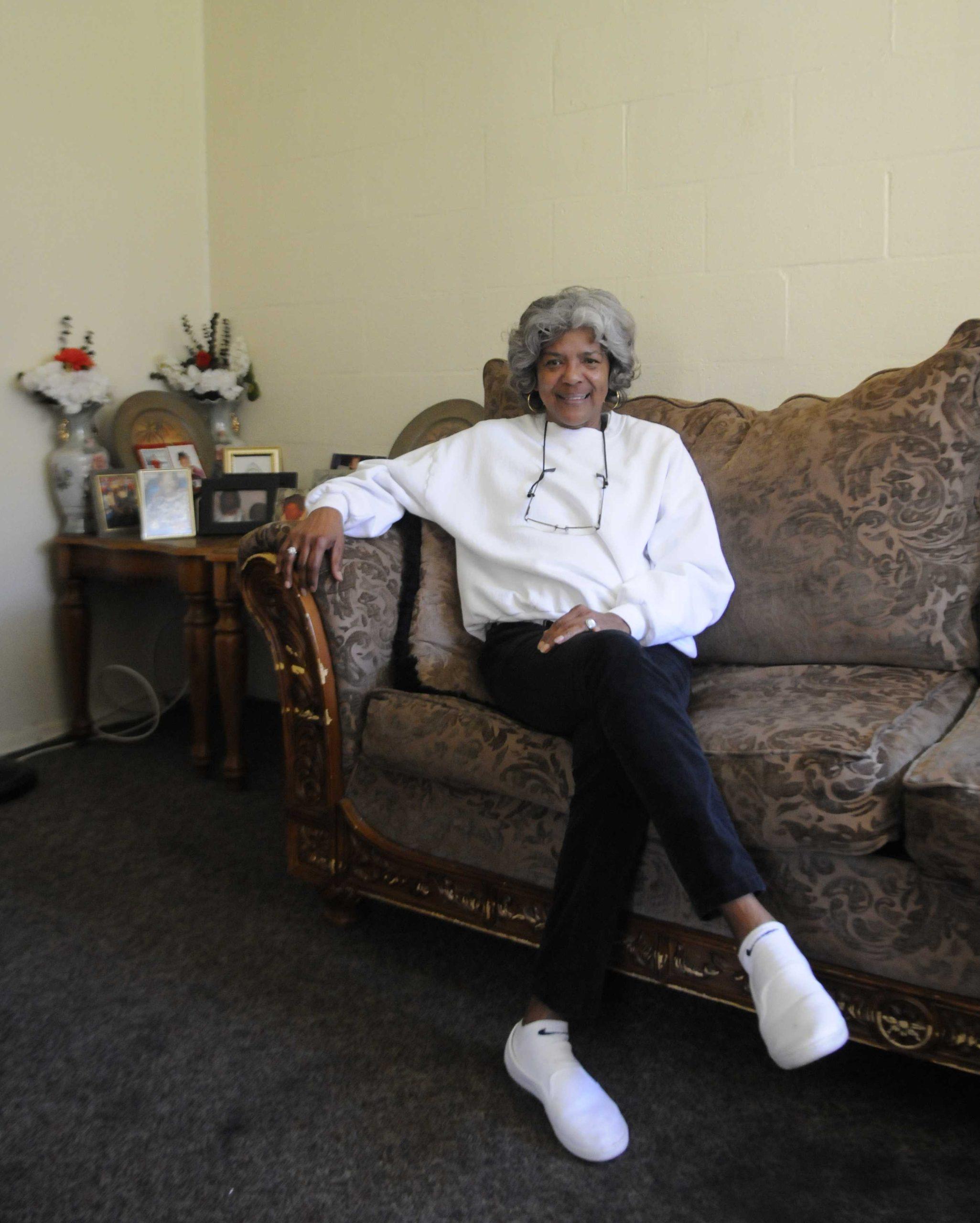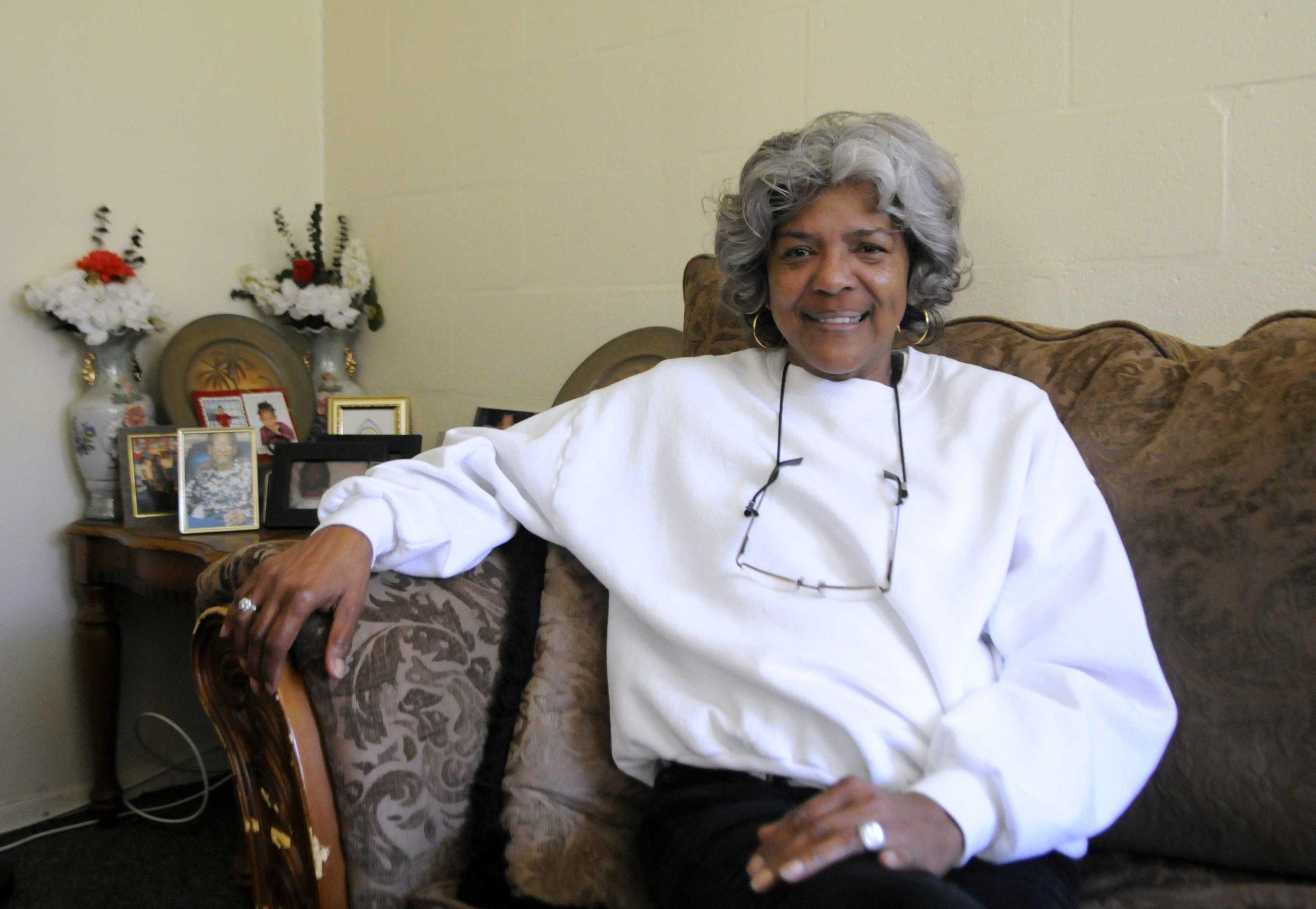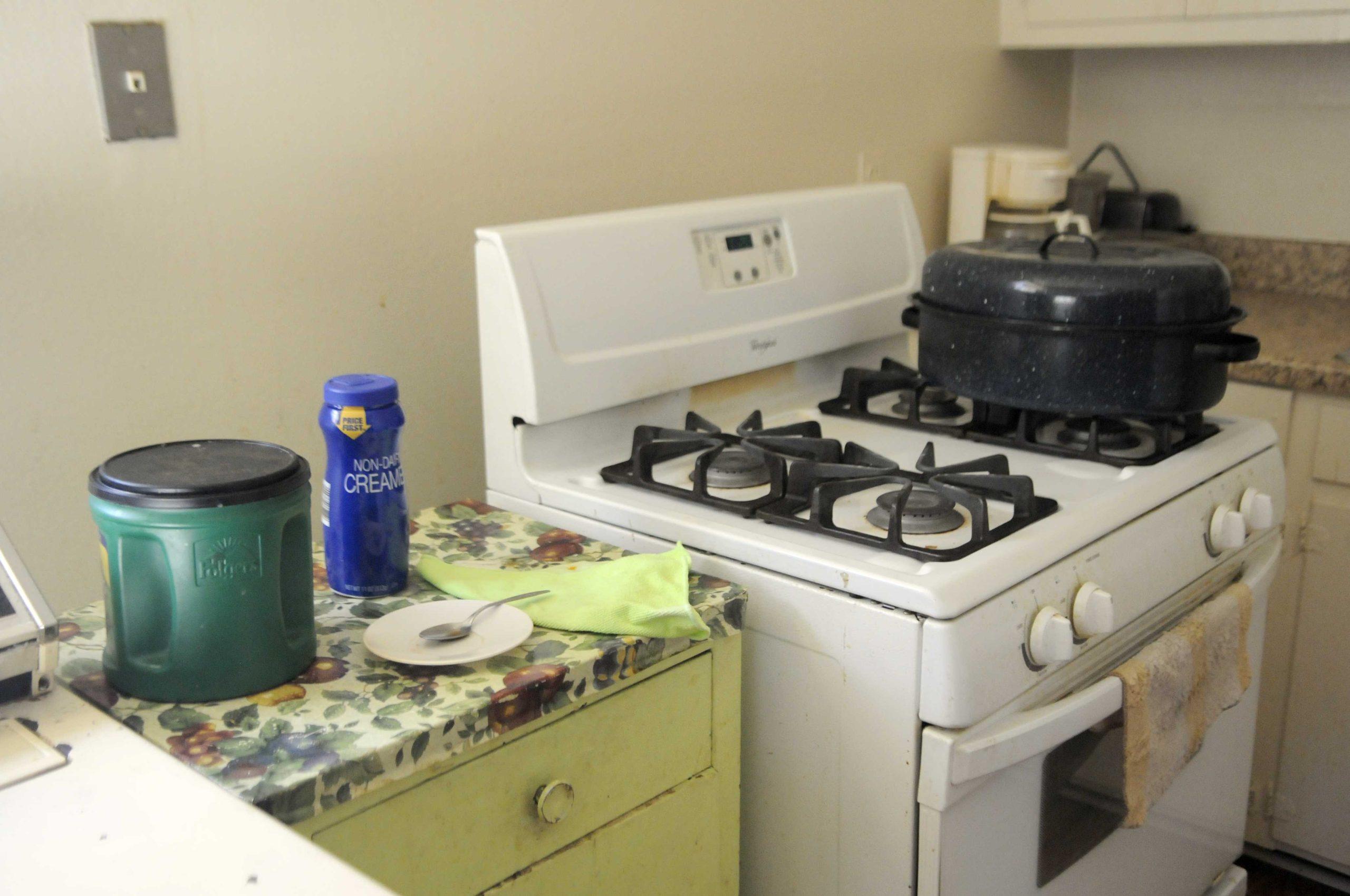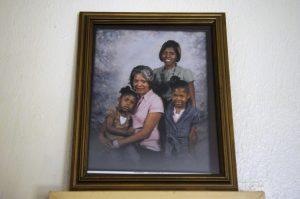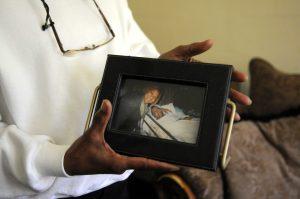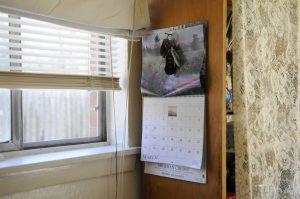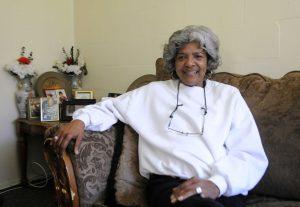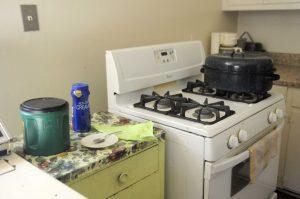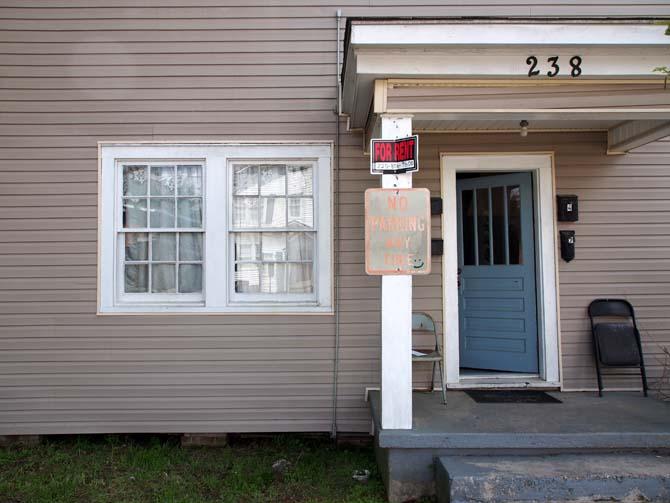Lifelong Baton Rouge resident Laura Bell waits at the Dr. Leo S. Butler Community Center to be called next.
She’s patient and shows her brother a protective smile.
When approached, Bell talks with the charisma of an experienced storyteller. She is cheerful and engaging, filling her sentences with a pause and a subtle smile.
Every month, she comes to the community center with her brother to get assistance with their Entergy bill payments. Unlike several others in the waiting room chairs, Bell has a hopeful twinkle in her eye.
But at 61 years old, Bell suffers from extreme arthritis and is unable to work. Some days Bell’s joints cramp up, and she calls her sister to help her with simple tasks.
She receives assistance to pay her bills but maintains she has seen times that were much worse. She’s doing all right.
She now lives in a modest two-bedroom apartment in the Valley Park neighborhood, but when making the move, Bell worried about being able to pay rent.
Even with help from her daughter, Bell knew the $500 she gets in assistance would not cover the apartment’s rent, yet Bell did not want to disturb her daughter’s privacy by moving in with her.
“I couldn’t do it. I knew I couldn’t do it,” Bell said.
She said her landlady showed compassion, and the rent was lowered. Bell she moved into the apartment next to her brother.
Bell described her landlady’s daughter’s as “sweet as gold” when she brought Bell pots and pans, bonding over Bell’s love of cooking.
Bell seems capable of surviving on a modest allowance, but she isn’t the only Baton Rouge resident struggling to pay for basic needs.
According to the Census Reporter, 20 percent of Baton Rouge residents live below the poverty line.
The U.S. Department of Health and Human Services defines the poverty line as when a single person makes $11,490 or less a year.
In 1967 when Bell was in high school, her parents were bedridden for months after a car accident. As the oldest girl, she saw no option but to leave high school to help pay bills, care for her parents and provide for her siblings. No one told her she had to, but she assumed the role of caretaker with no regrets.
Life took its turns. She married in 1972, and when Bell and her ex-husband separated, she moved back in with her parents and received welfare and food stamps to help keep her family afloat.
The assistance, however, was not enough to feed her son and daughter, and Bell still wanted to help her parents with their bills — the caretaker role she never forgot.
She did housework, waxing and mopping the floors on her knees for $8 a day.
Bell applied to work at Pizza Hut and left her job as a maid in 1977 and began working at the franchise, making $32 every two weeks.
“That’s where I started working and saving,” Bell said,
With no car, she endured the changing Baton Rouge weather every day, walking 25 minutes to get to work.
“Rainy days, cold days, I had to go. It was my only source of income,” Bell said. “Keep your head up, keep praying and keep getting up in the morning and go to work.”
She never waved a white flag. Bell set an example for her children by earning her GED, showing them the value of self-improvement. She worked at the Exxon Carwash near her home for 15 years until it closed.
Though Bell managed to provide for her family, she said she’s also made some narrow escapes through her life.
The twinkle in her eyes was lost with these words, stolen by a look of yearning when she described one of the most difficult points in her life — 10 years of mental and physical abuse from her live-in partner.
One day Bell drew the line and stopped her abuser. Her neighbor saw their altercation outside and called for the beating to stop, but he grabbed her by the top of her head and continued to beat her.
“I could hear my children screaming and hollering, but there was nothing I could do,” Bell said.
The next morning she saw her bruised face — a reflection so battered she no longer recognized herself. Her partner, a corrections officer, was sleeping.
Bell pulled his gun from their bedside drawer and put it to his head while dialing 911.
She left the phone off the hook, but when emergency services arrived, Bell feared her partner would kill her if she moved. She remained frozen until the police broke her back window to enter her home.
“I was scared to move,” Bell said. “The sheriff said ‘We’re here, he won’t hurt you no more.’”
Her abuser went to jail, and Bell’s self-esteem grew as she promised herself she would never be disrespected again.
“I knew a man wasn’t going to treat me like that again,” Bell said.
Now Bell lives alone in her modest apartment. It’s filled with photos of her family and pots and pans, returning to her role as a caretaker and provider, always cooking.
“I used to get very stressed, being by myself,” Bell said. “It makes my day. I’m at ease.”
She said her house is always filled with family and aromas of the meal she’s cooking.
Life has come full circle for Bell. Her daughter and son provide for her like she did for them and like her parents did for her.
Bell’s daughter’s car is parked outside her apartment. She borrows it for doctor’s appointments or trips to the grocery.
“It makes me feel proud. She taking care of me like I took her,” Bell said. “I wouldn’t trade anything for the world.”
“Keep your head up, keep praying and keep getting up in the morning and go to work.”
Persevering through Poverty: Laura Bell’s story
April 2, 2014
Baton Rouge resident Laura Bell opens up about her struggles with poverty in the city.
More to Discover



